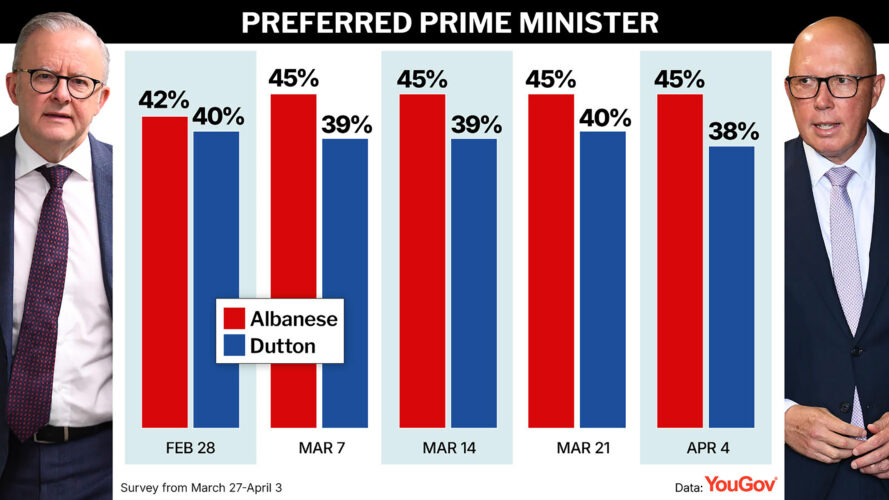On to the public service workers cut policy that the Coalition just can’t seem to get the details straight on:
Q: Prime Minister, James Paterson said voluntary redundancies have always been part of the coalition’s public service plan. Why wasn’t this included in your policy statement on Monday, and how many redundancies do you plan to offer?
Dutton:
We have spoken about that a lot. The point I would make in relation to the issue is that Australians are working harder than ever. There’s Australians now who are working second and third jobs, paying taxes, can’t keep their heads above water with Mr Albanese’s increasing costs. They’re paying 30% more than for groceries [not true, it is 12% which is still not great, so why lie about the number?], 34% more for gas (the Coalition voted against the energy rebates, which has brought the cost of energy down). Australians want their taxpayer dollars to be spent efficiently.
Q:But voluntary redundancies… What’s the modelling for the voluntary redundancies. It’s a new element. Are you going to offer people money to leave their jobs in the public service?
Dutton:
We are looking at where we can have an employment freeze and the natural attrition. That helps us achieve the 41,000. It allows us to invest into important areas, including the fuel tax reduction. Under us, there’s a 25 cent fuel tax reduction, so young families, pensioners, tradies, across the economy, get a 25 cent cut to fuel tax because of our careful economic management. Under Labor, you get a 70 cent per week, per day tax cut.
Ok, so now that’s another change confirmed – looking at where the cuts can be made and then offering voluntary redundancies.
This policy was originally:
41,000 cuts from Canberra based public servants
then it was
41,000 people to be sacked with the detail to be worked out after the election
and then:
No one would be sacked, but 41,000 people who left from the Canberra based public service, but not in front line positions, or defence, would not be replaced over five years (which would be impossible)
to
41,000 people would not be replaced in the public service, and we’ll offer voluntary redundancies to help get there, but we’ll work out where to offer those redundancies after the election, if we win.

